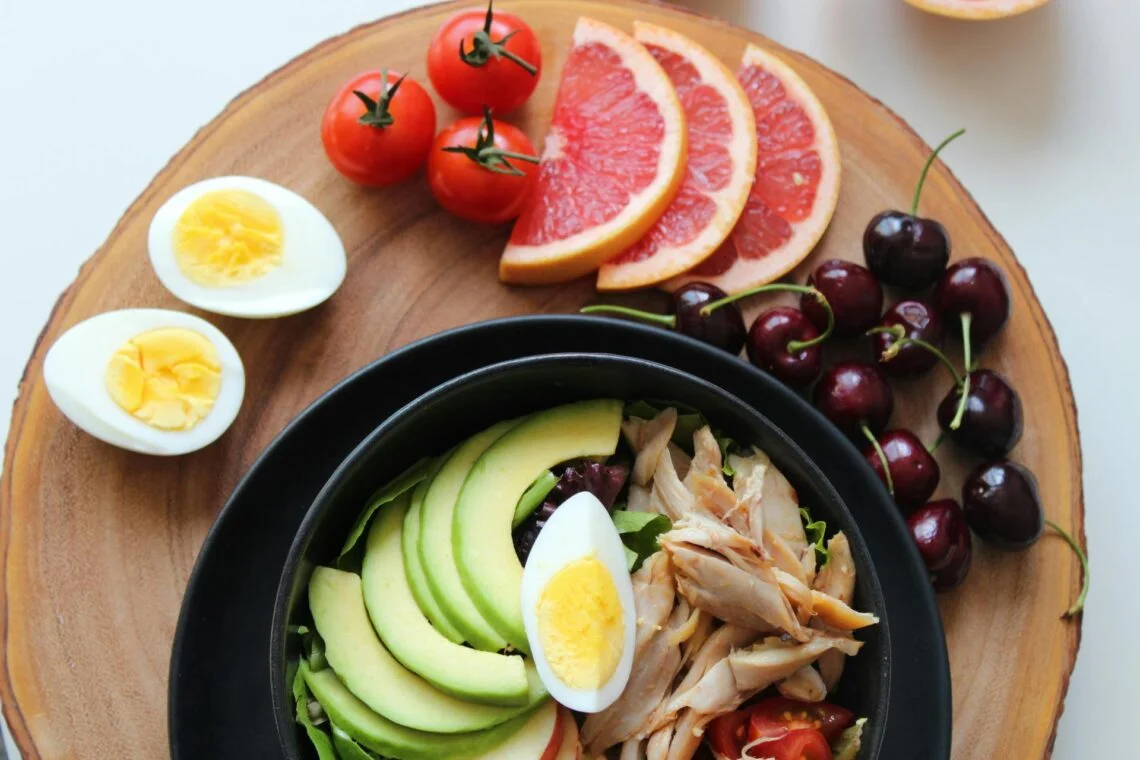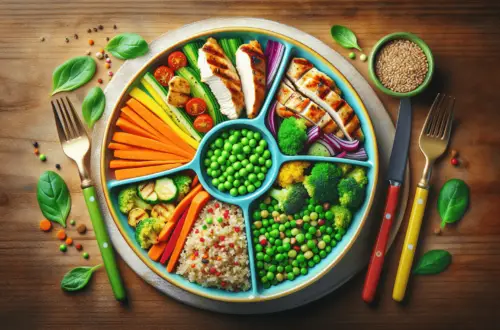Are you on a mission to shed those stubborn inches around your midsection? “What Diet Is Best For Reducing Belly Fat?” is your go-to guide for understanding which foods to embrace and which to ditch to achieve a slimmer waistline. This article delves into effective dietary choices, breaking down the science behind belly fat reduction and offering practical tips to help you make smart eating decisions. From balanced meal plans to nutrient-rich foods, you’ll uncover the secrets to achieving a trimmer, healthier you. Have you ever looked in the mirror and wished the extra belly fat would just disappear? You’re not alone. Many people feel the same way and often wonder what diet might help shed those stubborn pounds around the middle. Today, we’re going to explore this topic in detail and guide you towards understanding what diet is best for reducing belly fat.
Understanding Belly Fat
Before we dive into specific diets, let’s first understand what belly fat is and why it can be so challenging to lose.
Types of Belly Fat
There are two main types of belly fat:
- Visceral Fat: This type of fat surrounds your internal organs and can contribute to serious health issues like heart disease and type 2 diabetes.
- Subcutaneous Fat: This is the fat layer just under your skin. While it’s not as dangerous as visceral fat, it can still be undesirable aesthetically.
Why Belly Fat Is Stubborn
Belly fat is often resistant to diet and exercise due to its role in protecting vital organs and providing energy reserves. Hormones and genetic factors also play a role in determining where your body stores fat.
Factors Contributing to Belly Fat
Several factors can contribute to the accumulation of belly fat, including:
Poor Diet
Diet high in sugars, refined carbs, and unhealthy fats can lead to an increase in belly fat. These foods can cause spikes in your insulin levels, which promote fat storage.
Lack of Physical Activity
A sedentary lifestyle means you’re not burning the calories you consume, leading to fat storage, particularly around the abdominal area.
Stress and Sleep
High-stress levels and lack of sleep can increase cortisol, a hormone that promotes fat storage in the belly.
Genetics
Your genes can influence your susceptibility to gaining weight around your midsection.
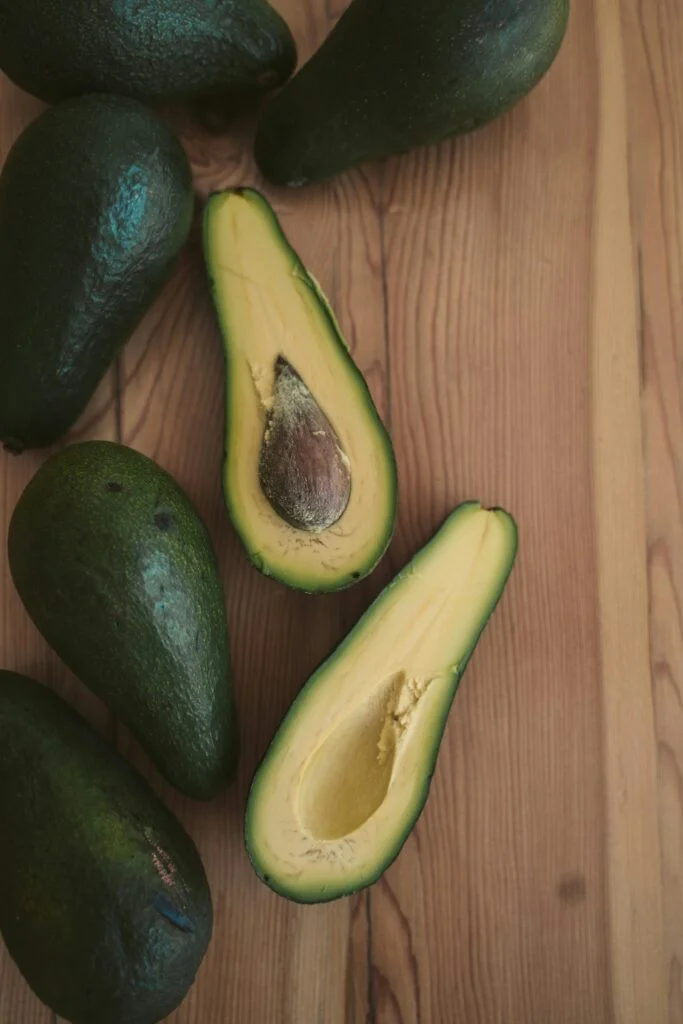
Diet Strategies for Reducing Belly Fat
Understanding what contributes to belly fat is crucial, but what you eat plays a major role in tackling it.
Emphasize Whole Foods
Whole, unprocessed foods are often lower in sugar and higher in nutrients, helping you feel full longer and reducing the likelihood of overeating.
- Fruits and Vegetables: Rich in fiber, these foods can help keep you full and lower overall calorie intake.
- Whole Grains: Foods like oatmeal, quinoa, and brown rice can stabilize blood sugar levels and reduce cravings.
- Lean Proteins: Foods like chicken, turkey, tofu, and fish can help build muscle mass, which in turn can help burn more calories.
Reduce Refined Sugars and Carbs
Refined sugars and carbs can cause spikes in your blood sugar levels, leading to increased fat storage. Opting for complex carbs such as whole grains and legumes can provide sustained energy and reduce fat accumulation.
| Type | Examples |
|---|---|
| Refined Carbs | White bread, pastries, sugary cereals |
| Complex Carbs | Brown rice, whole-wheat pasta, sweet potatoes |
Increase Fiber Intake
Fiber-rich foods can help regulate digestion and reduce belly fat. They create a feeling of fullness, reducing overall calorie intake.
| High-Fiber Foods | Fiber Content (per serving) |
|---|---|
| Lentils | 15.6 grams per cup |
| Black Beans | 15 grams per cup |
| Broccoli | 5.1 grams per cup |
Include Healthy Fats
Healthy fats, such as those found in avocados, nuts, and olive oil, can help reduce belly fat by providing satiety and aiding in nutrient absorption.
| Healthy Fats Source | Benefits |
|---|---|
| Avocado | Rich in monounsaturated fats |
| Nuts (Almonds, Walnuts) | High in omega-3 fatty acids |
| Olive Oil | Contains antioxidants and healthy fats |
Stay Hydrated
Drinking water helps with digestion and can make you feel full, reducing overall calorie consumption. Aim for at least 8 glasses of water per day.
Moderate Alcohol Consumption
Alcohol can contribute to weight gain, particularly around the belly. Moderation is key. Try to limit your intake to enjoy the benefits without the belly bulge.
Specific Diet Plans for Reducing Belly Fat
Now that we have an idea of what to prioritize and avoid in your diet, let’s look at some specific diets that may be effective for reducing belly fat.
Mediterranean Diet
The Mediterranean diet focuses on whole foods like fruits, vegetables, whole grains, and lean proteins. It’s also high in healthy fats from olive oil, nuts, and fish.
Benefits
- Heart Health: Rich in antioxidants and healthy fats.
- Weight Loss: Nutrient-dense foods help in reducing belly fat.
- Sustainability: Easy to maintain in the long-term.
Low-Carb Diets
Low-carb diets like the Atkins or ketogenic diets can help you lose belly fat by forcing your body to use fat for energy in the absence of sufficient carbohydrates.
Benefits
- Rapid Weight Loss: Initial loss is mostly water weight, followed by fat.
- Reduced Appetite: Higher protein and fat levels can make you feel full.
- Improved Blood Sugar Levels: Lowering carb intake can stabilize blood sugar.
Intermittent Fasting
Intermittent fasting involves cycling between periods of eating and fasting, such as the 16/8 method (16 hours of fasting and 8 hours of eating).
Benefits
- Calorie Restriction: Naturally limits caloric intake, helping with weight loss.
- Improved Metabolism: Boosts metabolism and can aid in fat loss.
- Simplicity: Doesn’t require counting calories or specific foods.
DASH Diet
Originally designed to combat high blood pressure, the DASH diet focuses on whole foods, reduced sodium intake, and healthy eating patterns that discourage weight gain.
Benefits
- Healthy Heart: Lowers blood pressure and improves heart health.
- Balanced Nutrition: Emphasizes fruits, vegetables, and lean proteins.
- Weight Loss: Encourages healthy habits beneficial for reducing belly fat.
Plant-Based Diet
A plant-based diet focuses primarily on eating foods derived from plants. This includes fruits, vegetables, nuts, seeds, oils, whole grains, and legumes.
Benefits
- Nutrient-Dense: Packed with vitamins, minerals, and fiber.
- Low in Calories: Generally lower in calories than meat-heavy diets.
- Sustainability: Environmentally friendly and ethical.
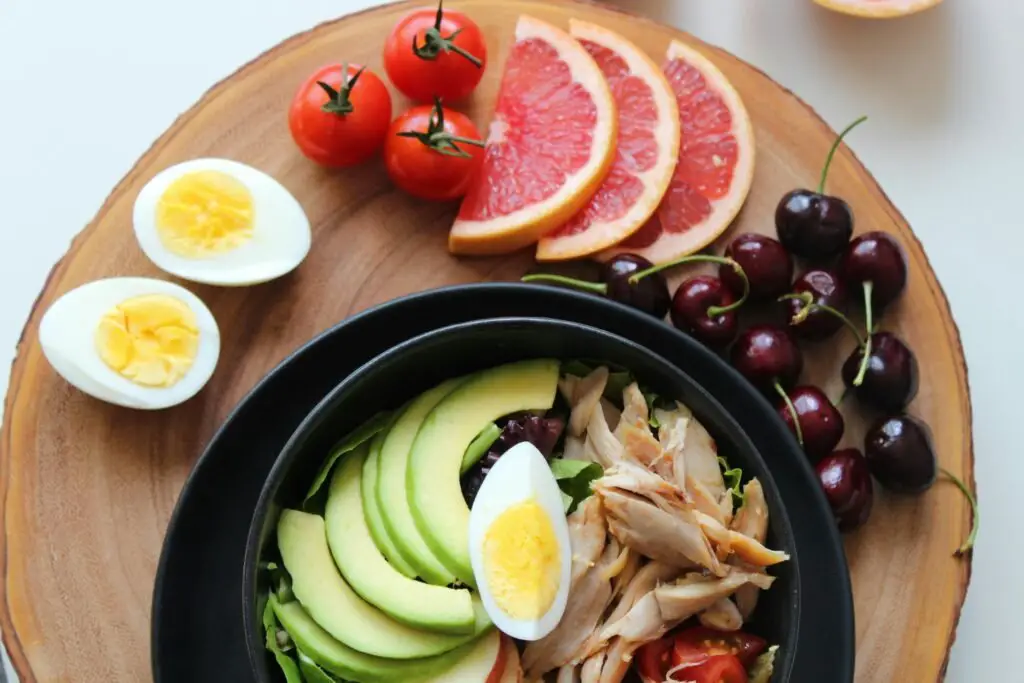
Putting It All Together
Adopting a diet high in whole foods, lean proteins, healthy fats, and fiber while reducing refined sugars, carbs, and your intake of processed foods can create a balanced approach to reducing belly fat.
Meal Plan Example
To help you get started, here’s a simple 3-day meal plan focusing on these principles.
| Day | Breakfast | Lunch | Dinner | Snacks |
|---|---|---|---|---|
| Day 1 | Oatmeal with berries | Grilled chicken salad | Baked salmon with quinoa | Almonds and an apple |
| Day 2 | Greek yogurt with honey | Turkey wrap with whole-wheat tortilla | Stir-fried tofu with vegetables | Hummus and carrot sticks |
| Day 3 | Smoothie with spinach and banana | Lentil soup with whole-grain bread | Grilled shrimp with brown rice | Mixed nuts and a piece of dark chocolate |
Lifestyle Changes to Support Your Diet
While diet is crucial, other lifestyle changes can support your efforts to reduce belly fat.
Regular Exercise
Incorporating both cardio and strength training can help burn calories and build muscle, aiding in overall fat loss.
Stress Management
Practicing stress management techniques like yoga, meditation, or deep-breathing exercises can help reduce cortisol levels, helping to fight belly fat.
Adequate Sleep
Aim for 7-9 hours of sleep per night to help regulate hormones associated with hunger and fat storage.
Consistency
Consistency is key. A healthy diet and lifestyle changes need to be sustainable in the long term to effectively reduce belly fat.
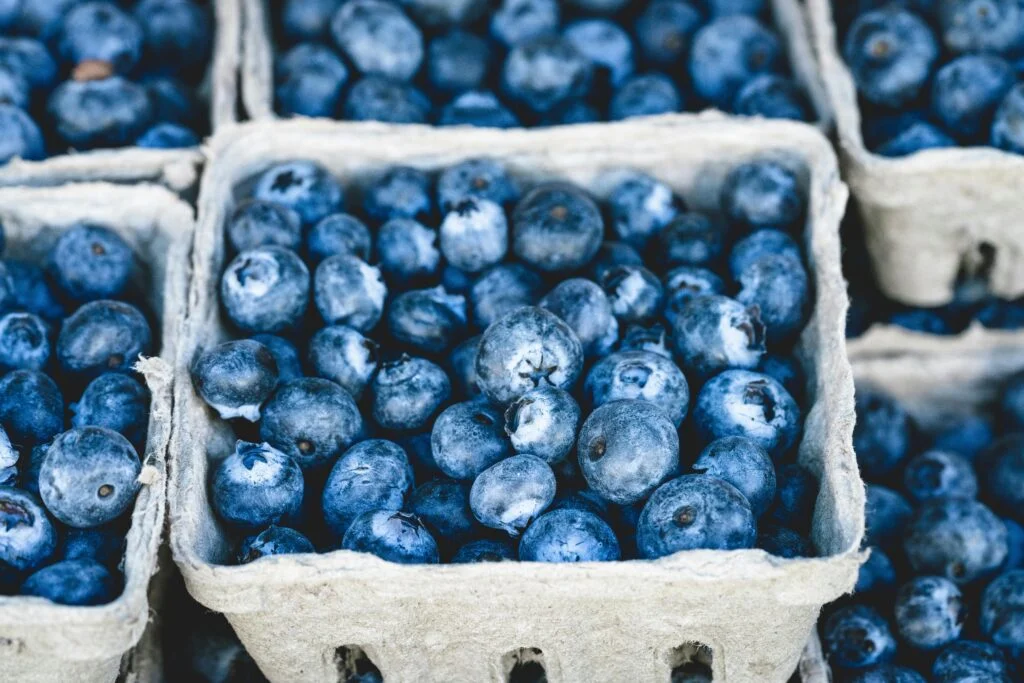
Conclusion
Reducing belly fat requires a holistic approach that combines a healthy diet with regular physical activity, stress management, and adequate sleep. By emphasizing whole foods, reducing refined sugars and carbs, and including healthy fats in your diet, you can make significant strides in reducing belly fat and improving your overall health.
Remember, there is no one-size-fits-all diet. What works best for you may depend on your individual physiology, lifestyle, and preferences. It’s always a good idea to consult with a healthcare provider or a nutritionist to create a personalized plan that best meets your needs.
So, are you ready to start your journey towards a healthier, trimmer you? Start making these small changes today, and over time, you’ll see and feel the difference!
